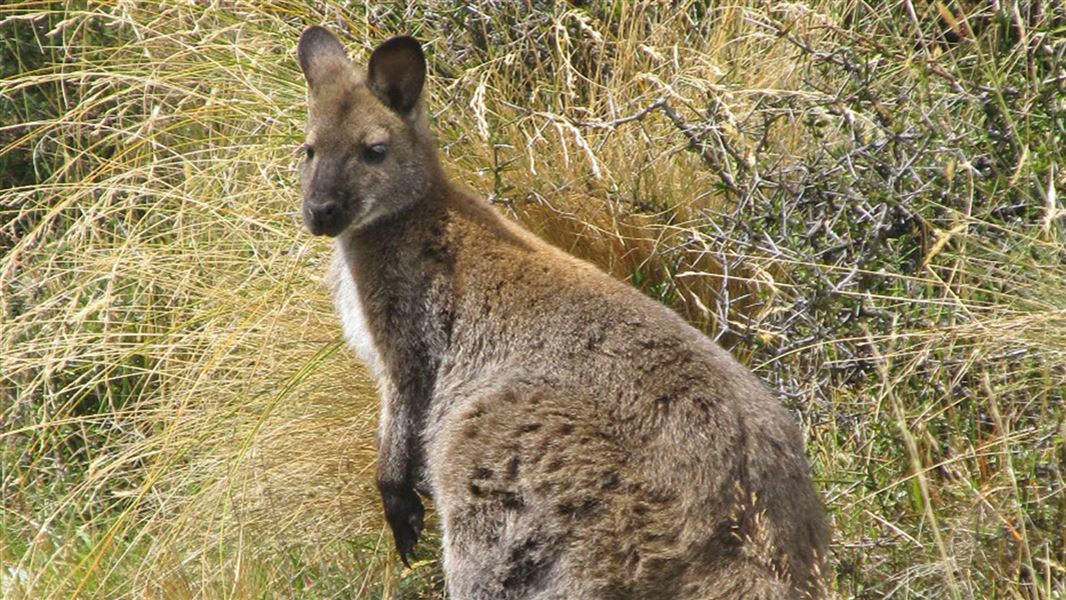Archived content: This media release was accurate on the date of publication.
Date: 21 November 2023
Wallabies are an unwelcome introduced pest in New Zealand, threatening the environment, biodiversity, and economy in Canterbury, North Otago and Bay of Plenty-Waikato.
South Westland Operations Manager Wayne Costello says there have been two reported wallaby sightings on the West Coast in recent months. Both were made by people travelling State Highway 6 south of Knights Point.
“These are the first serious wallaby sightings we’ve had on the Coast. It’s a concern as wallabies are capable of causing significant environmental damage. In native forests they eat seedlings and graze the understory, changing the structure of the forest, which destroys the homes and food of our native wildlife.”
The most recent report was made by someone who had experience with wallabies in Australia, he says.
“The community is key to preventing wallabies establishing a foothold on the West Coast. As wallabies are nocturnal, we want anyone travelling at night in the Knights Point area to keep an eye out and report any sightings.
The most common wallaby in the South Island, the Bennett’s wallaby, stands up to 80cm tall and weighs 14kg to 20kg. Their droppings are about 20mm long and tend to be pear-shaped, although this can vary. More information is available online at Ministry for Primary Industries.”
Wayne Costello says the only way wallabies could have got to the Coast is by people bringing them in.
It’s illegal to have, hold, move or transport wallabies without a permit. Anyone who breaches this law can face up to five years in prison and/or be fined up to $100,000.
Biosecurity New Zealand’s Tipu Mātoro National Wallaby Eradication Programme is working alongside DOC on the sightings providing operational and technical advice.
Any sightings or signs of wallabies anywhere in Aotearoa New Zealand should be reported to Biosecurity New Zealand. This can be done online at Report Wallabies.
More information
Five species of wallaby were introduced to Aotearoa New Zealand from Australia in the 1800s mainly for hunting and private zoos. They do not have natural predators in this country and have adapted well.
Wallabies can breed and spread quickly. Without action, it is estimated pest wallabies could inhabit up to one-third of Aotearoa New Zealand within 50 years.
Contact
For media enquiries contact:
Email: media@doc.govt.nz
